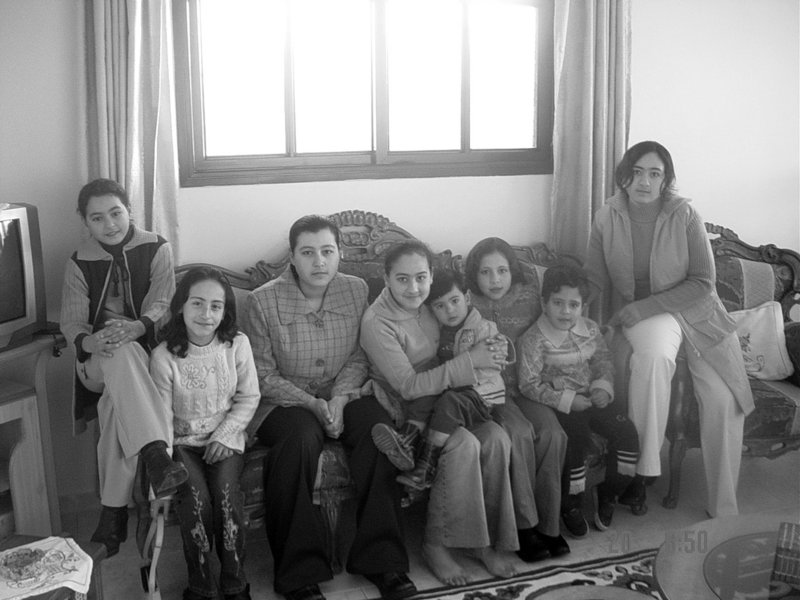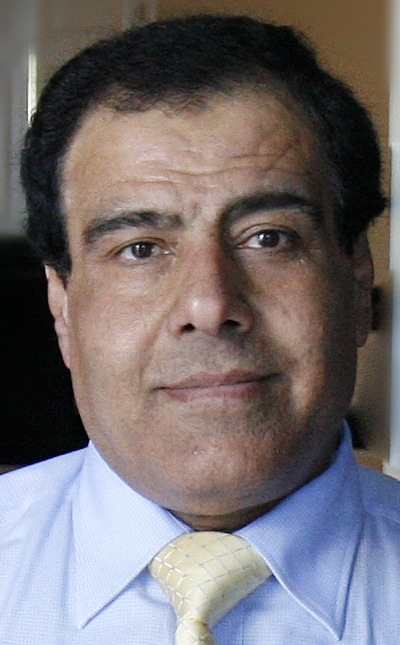His book is called “I Shall Not Hate.” And the more you hear about the story behind it, the more unlikely the title sounds.
“The wound is still there. The pain is still there. You can’t forget it,” Dr. Izzeldin Abuelaish said in a telephone interview Friday. “But I fully believe that we need to value human life. Human life is the most holy thing in the universe.”
It’s easy these days, as the spotlight in the Middle East flashes from Tunisia to Egypt to Libya to Bahrain to Yemen to Syria, to lose sight of the seemingly endless conflict between Israel and the Palestinian-occupied West Bank and Gaza Strip.
But come Thursday at the University of Southern Maine, Abuelaish will put four heartbreakingly human faces on that perpetually violent corner of the world.
Three of those faces — Bessan, 21, Mayar, 15, and Aya, 14 — belonged to Abuelaish’s daughters. The fourth, Nur Abuelaish, 17, was his niece.
All were killed in an attack on the family’s home in Gaza by an Israeli Army tank during the 22-day Gaza War in January 2009.
Abuelaish, a Palestinian gynecologist who at the time was renowned for treating patients on both sides of the Palestinian-Israeli divide, was there when they died. And for all the right reasons, he hasn’t stopped talking about it since.
“He is a very rare and fine human being who refuses to just make broad-brush, blanket condemnations of any group of people as a whole,” said Robert Schaible, chairman of Maine Voices for Palestinian Rights, which is sponsoring Abuelaish’s visit along with 21 other Maine organizations.
He’s also a breaker of stereotypes.
Abuelaish, 55, grew up in the Jabalia refugee camp in Gaza.
As a child, he recalls in his memoir, he guarded his school textbooks “the same as a mother cat would hold on to her newborn kittens” because he sensed from an early age that a good education was “something sacred and the key to many possibilities.”
Indeed. Supported by his extended family, Abuelaish went on to study medicine and public health policy in Cairo, Saudi Arabia, London, Italy, Brussels and at Harvard University before returning to his homeland.
He married and over the years had eight children. He also became a professional rarity — a Palestinian doctor who not only treated his own people, but also crossed over from Gaza each day to practice gynecology and fertility medicine at an Israeli hospital.
“I have long felt that medicine can bridge the divide between people,” he writes. “And that doctors can be messengers of peace.”
Abuelaish’s life took its first tragic turn in September of 2008 when his wife, Nadia, died of leukemia.
Then four months later, as he hunkered down with his children and other relatives in their home to ride out the Israeli military’s three-week offensive against militant Palestinians in Gaza, a round from an advancing Israeli tank ripped into the residence.
The well-known doctor who had used his profession to promote peace could only watch in horror as his three daughters and niece died right before his eyes. A fourth daughter, 17-year-old Shada, sustained serious head wounds.
All of Israel watched as well.
For days, Abuelaish had been in regular telephone communication with an Israeli television journalist, providing first-hand updates on the hostilities inside Gaza. Now here he was on live television, wracked with grief and pleading for someone, anyone, to help.
A Palestinian ambulance took Shada to the border crossing, where she was transferred to an Israeli ambulance and rushed to the very hospital where Abuelaish worked. She survived, but lost the vision in her right eye.
And Abuelaish, from that day forward, became a man on a mission — not to avenge the loss of his daughters and niece, but rather to honor them.
“I maintain that revenge and counter-revenge are suicidal, that mutual respect, equality and coexistence are the only reasonable way forward,” he writes. “And I firmly believe that the vast majority of people who live in this region agree with me.”
He later adds, “If I could know that my daughters were the last sacrifice on the road to peace … then I would accept their loss.”
Abuelaish now lives with his five surviving children in Canada. Just before the attack, he’d accepted a position as an associate professor in women’s health at the University of Toronto.
His book, published by Walker and Co., spent much of last year on Canada’s best-seller list. It harbors nary a hint of the anger so commonplace in the tit-for-tat hostilities that keep the Israelis and Palestinians perpetually on the brink of all-out war.
How so? How does this man, who’s lost so much, resist the urge to put down his stethoscope and pick up an AK-47?
“Hate is never the solution. Hate will never be the solution,” Abuelaish said by telephone from his office in Toronto last week. “The solution is to move forward, to succeed, to challenge with wisdom and good words, good deeds.”
Want to hear more?
Abuelaish’s 7 p.m. speech Thursday at USM’s Abromson Center will be preceded at 6 p.m. by a reception. The $10 suggested donation for the event will go toward “Daughters for Life,” a foundation Abuelaish created to promote education and advancement for girls and women throughout the Middle East.
You might also pick up a signed copy of his book — a ray of hope if ever there was one from a father whose only enemy is despair.
“It’s not my book — it’s everyone’s book,” Abuelaish said. “It’s everyone’s message.”
Columnist Bill Nemitz can be contacted at 791-6323 or at:
bnemitz@mainetoday.com
Copy the Story Link
Send questions/comments to the editors.




Success. Please wait for the page to reload. If the page does not reload within 5 seconds, please refresh the page.
Enter your email and password to access comments.
Hi, to comment on stories you must . This profile is in addition to your subscription and website login.
Already have a commenting profile? .
Invalid username/password.
Please check your email to confirm and complete your registration.
Only subscribers are eligible to post comments. Please subscribe or login first for digital access. Here’s why.
Use the form below to reset your password. When you've submitted your account email, we will send an email with a reset code.